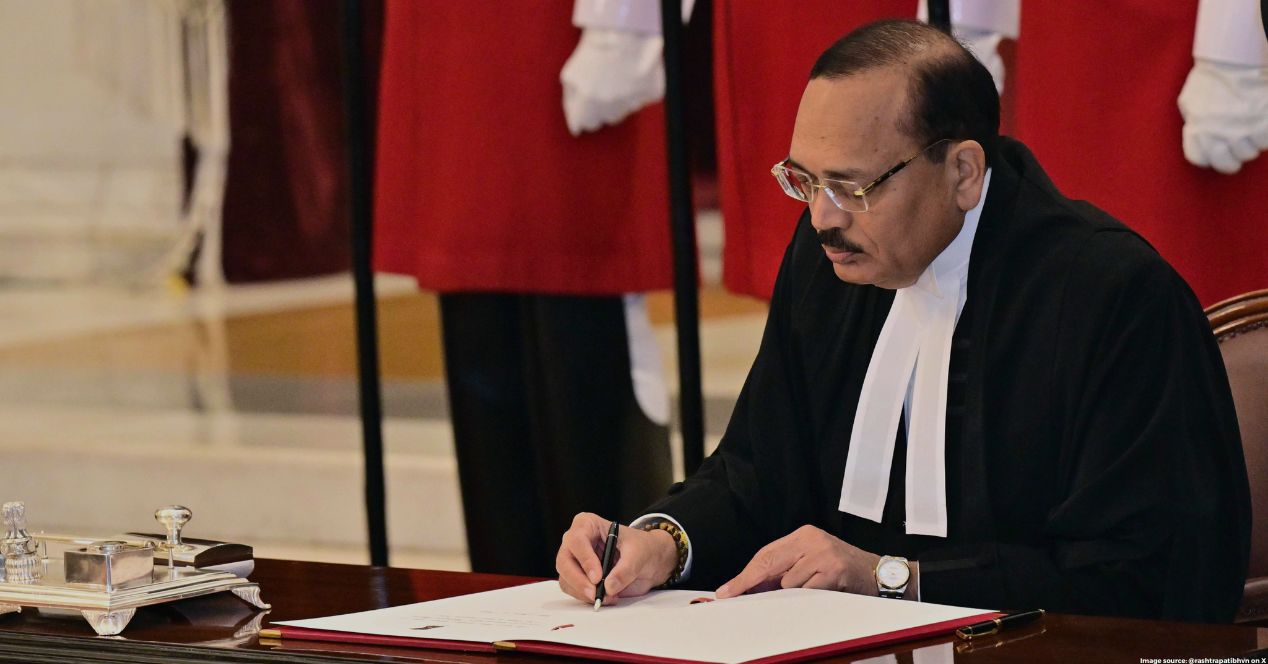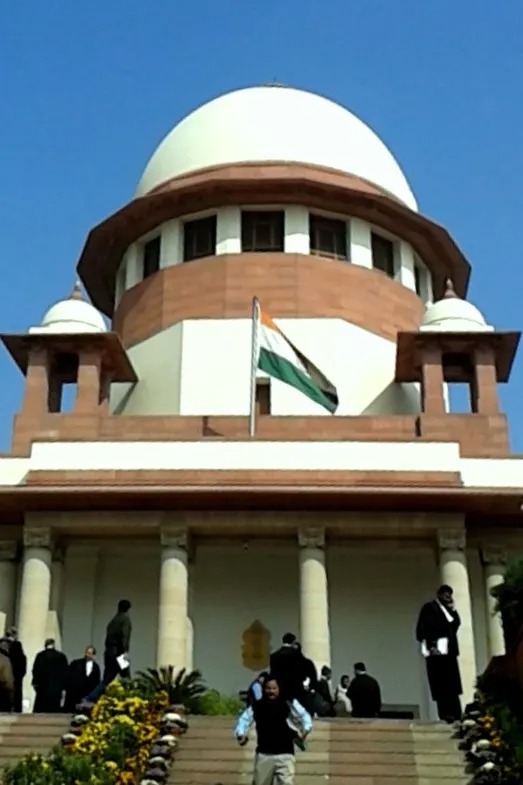Ranjan Gogoi, J.@mdashHeard Dr. A.K. Saraf, learned senior counsel assisted by Mr. S. Saikia, learned counsel for the petitioner. Also heard Mr. N.C. Phukan, learned State counsel.
2. The instant writ petition is projected against an order dated 30.4.1996 passed by the Deputy Commissioner of Taxes, Tinsukia Zone, Tunsukia in exercise of suo motu revisional powers u/s 36(1) of the Assam General Sales Tax Act, 1993 (hereinafter referred to as the Act). By order dated 25.4.1991, the assessment of the petitioner for the period ending 30.9.1988 was completed by the Assessing Officer u/s 9(4) of the Assam Finance (Sales) Tax Act, 1956. The aforesaid assessment order was passed after taking into consideration the report submitted by the Inspector of Taxes acting under the provisions of the Act. Tax to the extent mentioned in the assessment order was assessed and recovered. Thereafter, it appears that a notice for reopening the aforesaid assessment u/s 18 of the Act, which had come into operation in the meantime, was issued to the petitioner on 13.8.1993. The petitioner submitted his reply to the said notice on 8.10.1993 which was followed by further explanations on 19.10.1993. According to the writ petitioner no order was passed by the Assessing Officer on the said proceeding for reopening of the assessment. Thereafter, a notice dated 5.2.1996 was issued by the Deputy Commissioner of Taxes, Tinsukia directing the writ petitioner to show cause as to why the assessment for the period ending 30,9.1988 should not be cancelled and fresh assessment be made. The aforesaid notice issued u/s 36(1) of the Act goes on to record that the writ petitioner having concealed the value of 18,16,700 numbers of bricks for the assessment period in question, the assessment order dated 25.4.1991 is erroneous in so far as It is prejudicial to the interest of revenue. The petitioner unsuccessfully showed cause against the aforesaid notice. The matter was thereafter adjudicated by the Deputy Commissioner of Taxes, Tinsukia who by his order dated 30.4.1996, on the grounds and reasons mentioned, cancelled the assessment ordered on 25.4.1991 holding the same to be erroneous in so far as It is prejudicial to the interest of revenue. By the aforesaid order dated 30.4.1996, the Deputy Commissioner of Taxes. Tinsukia directed the jurisdictional Superintendent of Taxes to make a fresh assessment by adding Rs.7,26,780 to the taxable turn over of the petitioner for the period ending 30.9.1988. It may be noticed at this stage that in the aforesaid order dated 30.4.1996 the Deputy Commissioner of Taxes, Tinsukia has recorded that turn over of Rs.7,26,780 has escaped assessment for the period in question. Aggrieved by the said order, the Instant writ petition has been filed.
3. Mr. N.C. Phukan, learned State counsel, at the outset has raised an objection that the Instant writ petition ought not to be adjudicated on merits in as much as under the provisions of Section 33(2)(a) of the Act, the petitioner has his remedy, by way of a statutory appeal to the Tribunal. u/s 5A of the Act pending constitution of the appellate tribunal, the appellate powers have been vested in the Board of Revenue. According to the learned State counsel the writ petitioner ought to have exhausted the statutory remedy available to him before initiating the present proceeding under Article 226 of the Constitution. I have considered the submission advanced by Mr. Phukan. While Mr. Phukan may be right in his contention that the writ petitioner ought to have exhausted the remedies provided to him by the statute, it can not be said that failure to exhaust such statutory or alternative remedies available will act as an ouster of the jurisdiction of the writ Court. The rule of exhaustion of available alternative remedies is not a rule of law laying down an absolute/ inflexible principle. It is rather a rule of convenience and the eventual decision of the writ Court in this regard will have to be taken on a consideration of the totality of the facts of the case. The instant writ petition has remained pending in this Court since 1996. The arguments advanced by the learned counsel for the parties raises a pure question of law. Considering the above, I am inclined to exercise by discretion in favour of an adjudication of the case on merits instead of relegating the writ petitioner to the appellate forum at this belated stage of the present proceeding.
4. Dr. Saraf, learned senior counsel appearing for the writ petitioner has contended that in the impugned notice dated 5.2.1996 as well as the impugned order dated 30.4.1996, it has been recorded that the assessment order dated 25.4.1991 is erroneous in so far as it is prejudicial to the interest of revenue on account of the fact that the writ petitioner has concealed the sale of a specified quantity of bricks as a result of which the turn over of the petitioner has escaped assessment to tax. Dr. Saraf by relying on the replies submitted to the notice issued u/s 18 of the Act (Annexure-IV) has contended that the authority having initiated a proceeding for reopening of the assessment and thereafter, having abandoned the same, it would not be open for the revisional authority, i.e., the Deputy Commissioner of Taxes to invoke the suo motu powers u/s 36 on the same set of facts. Dr. Saraf has further argued that the expression ''erroneous'' as appearing u/s 36 of the Act has been interpreted by a Division Bench of this Court in the case of
5. Mr. Phukan, learned State counsel in addition to the objection raised regarding maintainability of the instant writ petition which have been noticed and answered in an earlier para of the Judgment, has submitted that the exercise of suo motu revisional powers u/s 36 in the facts of the Instant case is a wholesome exercise of powers vested by law in the authority and the same does not require any interference.
6. I have considered the rival submissions advanced on behalf of the parties. What is erroneous and prejudicial to the Interest of revenue so as to enable the exercise of suo motu revisional powers has been answered in numerous decisions of this Court as well as various other High Courts interpreting parimateria provisions of similar statutes, An erroneous order can not be equated with a wrong order as understood in common parlance. An order of assessment passed within the limits of the jurisdiction of the Assessing authority even if considered to be wrong by the revisional authority would not attract the exercise of suo motu revisional powers. The revisional authority for various good reasons may be inclined to view an assessment offer from a negative stand point. The revisional authority may likewise disagree with the views of the primary authority in its interpretation of the law imposing the liability or the extent or quantum thereof. It may disagree with the primary authority with regard to the determination of the amount of tax to be paid. It may also disagree with the primary authority on matters relating to deductions allowable under the statute. All such situations as aforesaid may render the order of the primary authority wrong or erroneous as commonly understood. Such situations, however, would not be facets of an erroneous decision in so far the meaning of the said expression as appearing in Section 36 of the Act is concerned. Judicial opinion is unanimous that the expression as appearing in Section 36 must be confined to jurisdictional errors otherwise there would be no distinction between the different aspects of the corrective power conferred by the provisions of the Act for application in different situation. No distinction between the power to reopen an assessment and the appellate or revisional power or the power to rectify would exist. There would be an intermingling of the powers resulting in confusion and uncertainty, a situation definitely not contemplated by any statute.
7. In the instant case, it is not the stand of the Deputy Commissioner that the primary authority did not have the jurisdiction to make the assessment or had exceeded its jurisdiction. The short and simple case of the Deputy Commissioner is that the turn over of the petitioner has escaped assessment due to concealments made by the assessee. The aforesaid facts, in my considered view, does not render the order infirm on account of any jurisdictional error. If tax has escaped assessment due to concealment, the proper recourse is to reopen the assessment u/s 18 of the Act. This is precisely what was attempted to be done but was abandoned subsequently. If on the given facts, the power u/s 18 was attempted to be exercised but subsequently abandoned, it is not understood how on the same set of facts the power u/s 36 can be exercised. The powers under both the aforesaid two provisions of the Act, namely Sections 18 and 36 operate in two different fields and is vested into two different authorities. To permit the revisional authority to exercise power u/s 36 in the facts of the instant case would be to permit the said authority to trench upon the powers of the primary authority u/s 18 of the Act. Such a situation has been disapproved of by the Apex Court in the case of State of Kerala v. K.M. Cheria Abdulla and Company (supra).
8. In view of the foregoing discussions, I have no hesitation in coming to the conclusion that the suo motu revisional order dated 30.4.1996 passed by the Deputy Commissioner of Taxes, Tinsukia needs to be interfered with. The aforesaid order, therefore, stands quashed and the writ petition is allowed.

